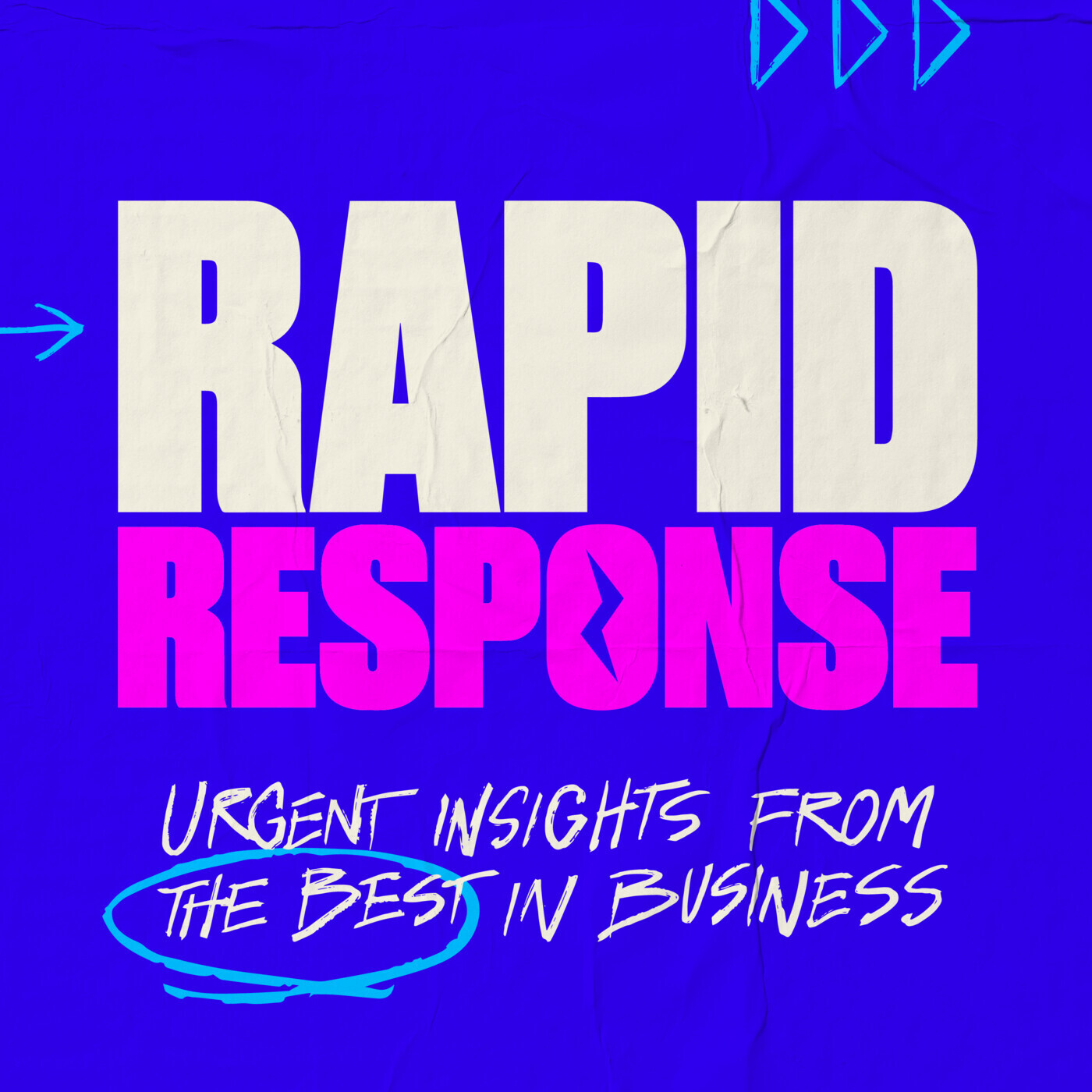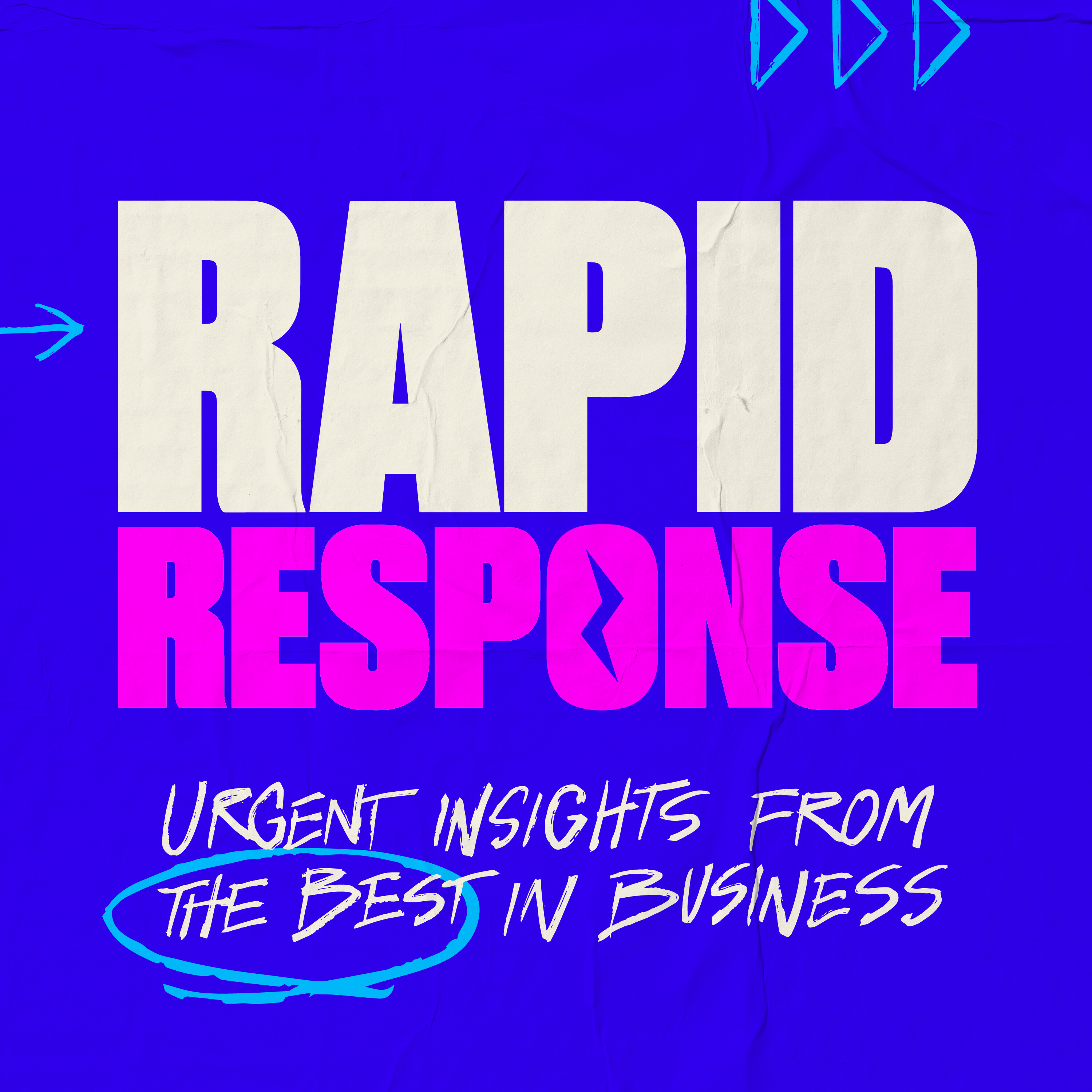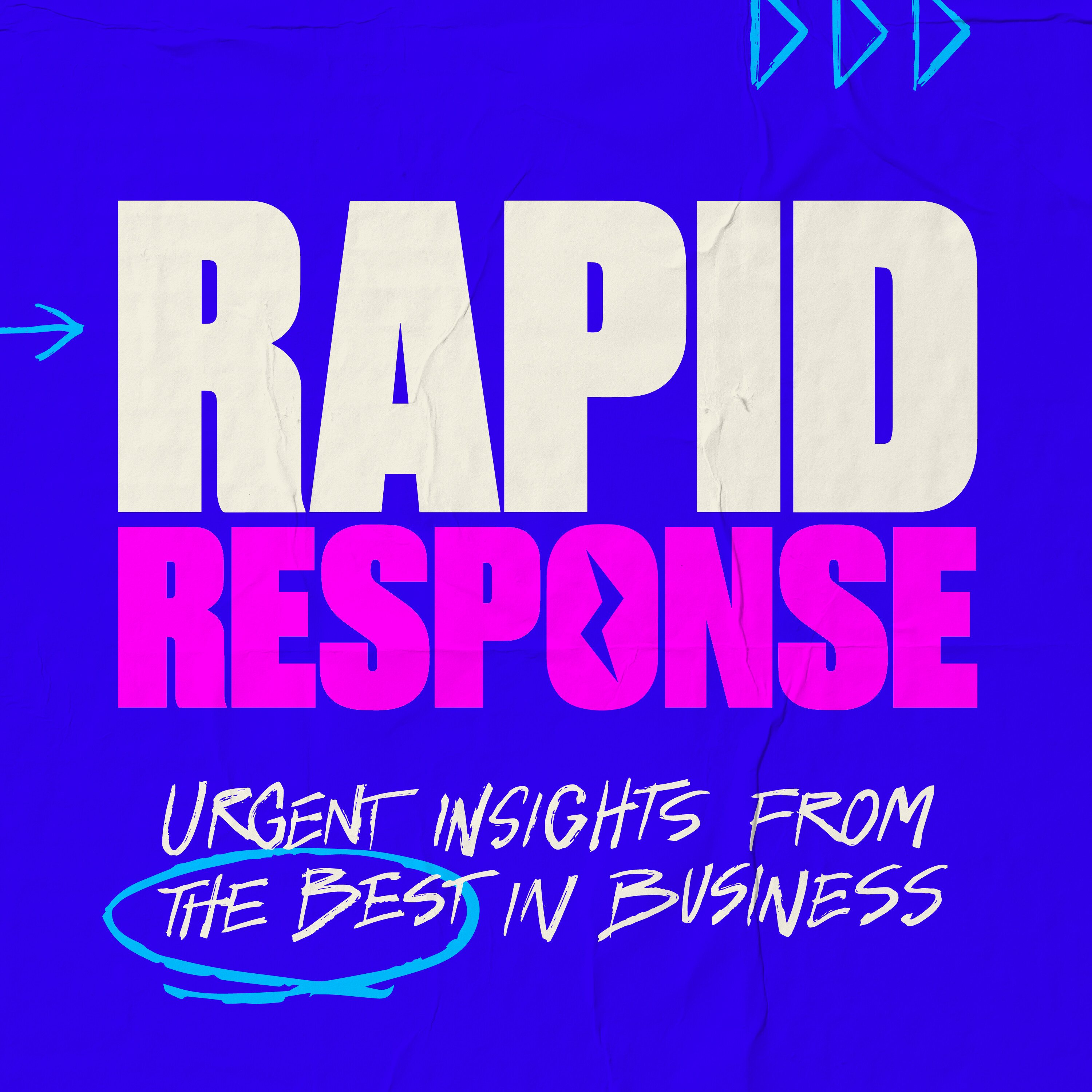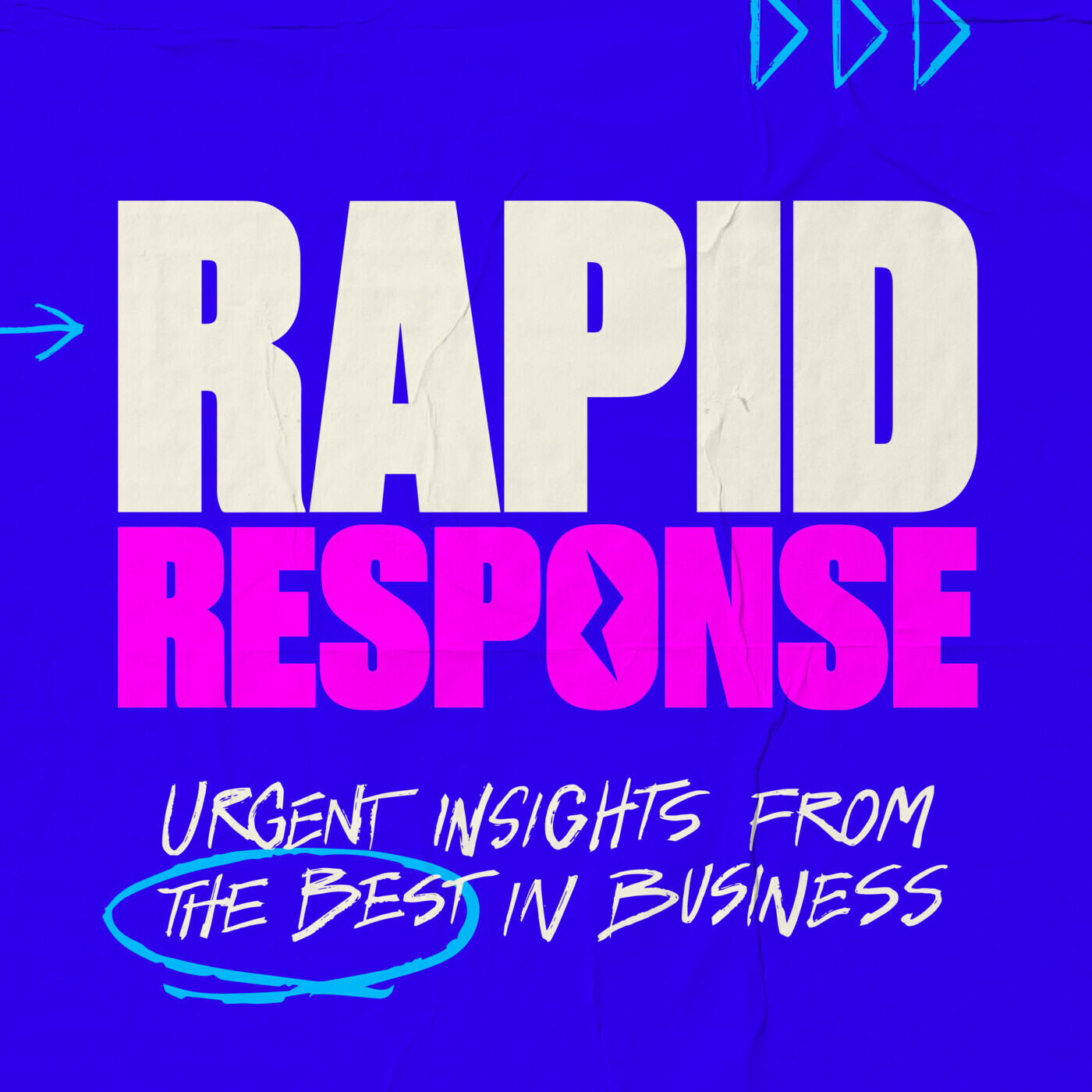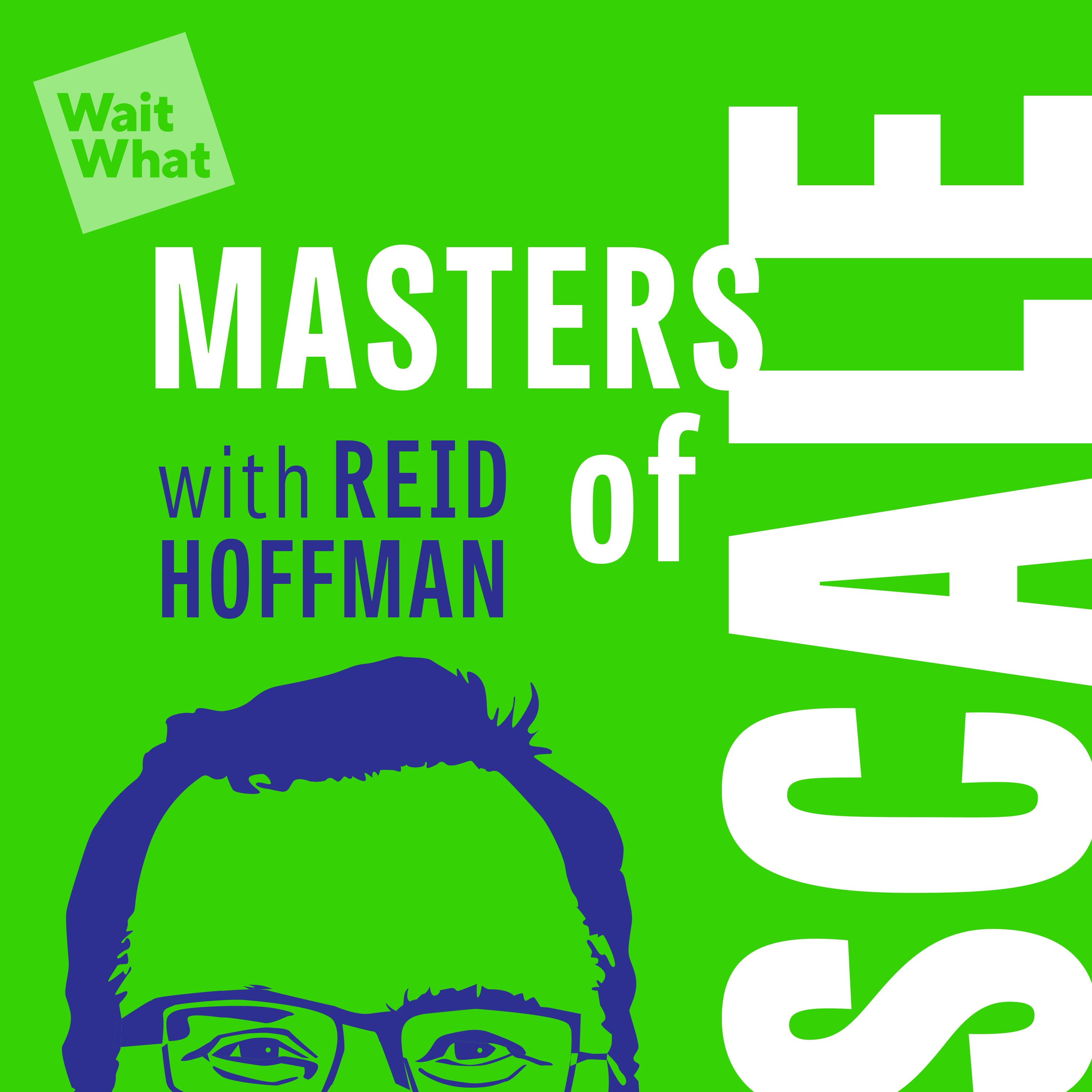
May 7, 2024 • 22min
Rapid Response: Caitlin Clark and the new WNBA, w/Commissioner Cathy Engelbert
Masters of Scale

Key Takeaways
- The WNBA is experiencing an unprecedented boom, driven by college phenoms like Caitlin Clark and Angel Reese entering the league
- Commissioner Cathy Engelbert is focused on capitalizing on this moment through expanded marketing, moving games to larger arenas, and attracting new fans
- The league raised capital in 2022 to invest in expansion, marketing, and building a global platform
- Engelbert emphasizes the need for household names, games of consequence, and rivalries to drive fan interest
- The WNBA is working to improve its TV schedule and media coverage to reach more viewers
- NIL deals in college are changing the financial landscape for players entering the WNBA
- Engelbert has navigated several crises as commissioner, including the pandemic and Brittney Griner's detention in Russia
- The league is focused on building a sustainable economic model and revenue growth to support higher player salaries over time
- Engelbert sees the next decade as potentially a "golden age" for the WNBA with an exciting pipeline of young talent entering the league
Introduction
This episode features an interview with Cathy Engelbert, commissioner of the WNBA, conducted by Bob Safian. The discussion focuses on the current momentum and business opportunities for the WNBA, driven by rising interest in women's sports and the entry of high-profile college stars into the league. Engelbert shares her strategies for capitalizing on this moment and building a sustainable future for the WNBA.
Topics Discussed
The Current Momentum in Women's Basketball (02:01)
Engelbert describes the current excitement around the WNBA as a "confluence of a lot of positive elements on both the business and basketball side." She cites several factors contributing to this momentum:
- A general rise in interest in women's sports
- Generational talent with large social media followings entering the league
- Increased media coverage
- Rising asset valuations (e.g. jersey patches, court placements)
- Capital inflows, including a significant investment in February 2022
Engelbert emphasizes that the league needs household names, games of consequence, and rivalries to drive fan interest. She notes that the recent NCAA tournament provided all three of these elements.
Capitalizing on the Moment (03:50)
Engelbert discusses strategies for leveraging the current excitement around women's basketball:
- Expanding marketing efforts (20x increase in marketers since she joined)
- Focusing on bringing in new fans and retaining them
- Moving games to larger arenas to accommodate more fans
- Emphasizing storytelling around players and rivalries
She states: "This is the moment to make sure that you can sell as many tickets, premier as many fans and then keep them."
The WNBA Draft and Cultural Events (04:50)
Engelbert highlights the success of the recent WNBA draft:
- High demand for tickets, creating an "Oscars-like" atmosphere
- Record-breaking merchandise sales, particularly for Caitlin Clark jerseys
She sees these cultural events as important for driving attention to the league.
Addressing Pay Disparities (05:43)
Engelbert discusses the challenge of addressing pay disparities between the WNBA and NBA:
- Emphasizes the need to build a sustainable economic model
- Points out the WNBA is only in its 28th season, compared to much older men's leagues
- Describes the league's transition from "survive to thrive mode"
She states: "We're trying to build something big here. We're trying to drive an economic model that's sustainable then that we're viewed as a legitimate sports median entertainment growth property."
Media Coverage and Scheduling (07:16)
Engelbert addresses concerns about the WNBA's TV schedule:
- Working with broadcast partners to secure better time slots
- Increase in ABC windows, which attract more "lifestyle viewers"
- Competing with other sports properties in the summer
- Growth in media coverage of women's sports from 5% to 15%
She emphasizes the need to reach fans across multiple platforms, including digital and social media.
Player Marketing and Endorsements (09:52)
Engelbert discusses efforts to increase player marketing opportunities:
- Moving games to larger arenas to showcase star players
- Paying players for off-season marketing activities
- Increased endorsement deals for WNBA players
She states: "I start out every meeting with my team with the bold will win. Everything must change because we can't think about the WNBA of the past. We have to think about the WNBA of the future."
Impact of NIL Deals (15:24)
Engelbert addresses the impact of new Name, Image, and Likeness (NIL) rules in college sports:
- Creates opportunities for players to build followings and secure endorsements before turning pro
- May reduce the need for some players to play overseas in the off-season
- Professional opportunities still provide more national and global exposure
She notes that top college players are often seeing more endorsement opportunities when they turn pro, not less.
Transition from Deloitte to WNBA Commissioner (17:08)
Engelbert reflects on her transition from CEO of Deloitte to WNBA Commissioner:
- Shift from abundant resources to a much smaller organization
- Similarities in building sustainable business models
- Different stakeholder groups in sports (players association, owners, fans, etc.)
- Series of crises faced early in her tenure (pandemic, racial justice issues, political challenges)
Crisis Management Lessons (18:38)
Engelbert shares insights on managing crises:
- Crises amplify weaknesses but also provide opportunities to fix them
- Importance of scenario planning (developed 5 scenarios for pandemic response)
- Recognizing when to invest and make counterintuitive decisions
- Drawing on past experiences to navigate unprecedented challenges
She emphasizes the existential threat posed by the pandemic and the need to have a season in 2020 to keep the league viable.
Building for the Future (20:38)
Engelbert discusses her approach to building the WNBA's future:
- Maintaining a startup mentality despite being a 28-year-old league
- Never being satisfied with current success
- Viewing the next decade as a potential "golden age" for the WNBA
- Excitement about the pipeline of young talent entering the league
She states: "We're pushing it to the top of the hill, and hopefully we're going to experience, I think, over the next decade, kind of the golden age of the WNBA."
Importance of Women's Sports (21:04)
Engelbert emphasizes the broader impact of women's professional sports:
- Providing role models for young girls globally
- Developing leadership skills and confidence in young women
- Statistic that 90% of Fortune 500 female CEOs played organized sports
She sees the WNBA as playing an important role in developing future leaders across various fields.
Conclusion
The interview with WNBA Commissioner Cathy Engelbert reveals a league at an inflection point, with unprecedented momentum and opportunities for growth. Engelbert's strategic focus on capitalizing on star power, improving media coverage, and building a sustainable economic model positions the WNBA to potentially enter a "golden age" in the coming decade. While challenges remain, including addressing pay disparities and competing in a crowded sports landscape, Engelbert's leadership and vision suggest a bright future for women's professional basketball in the United States.

